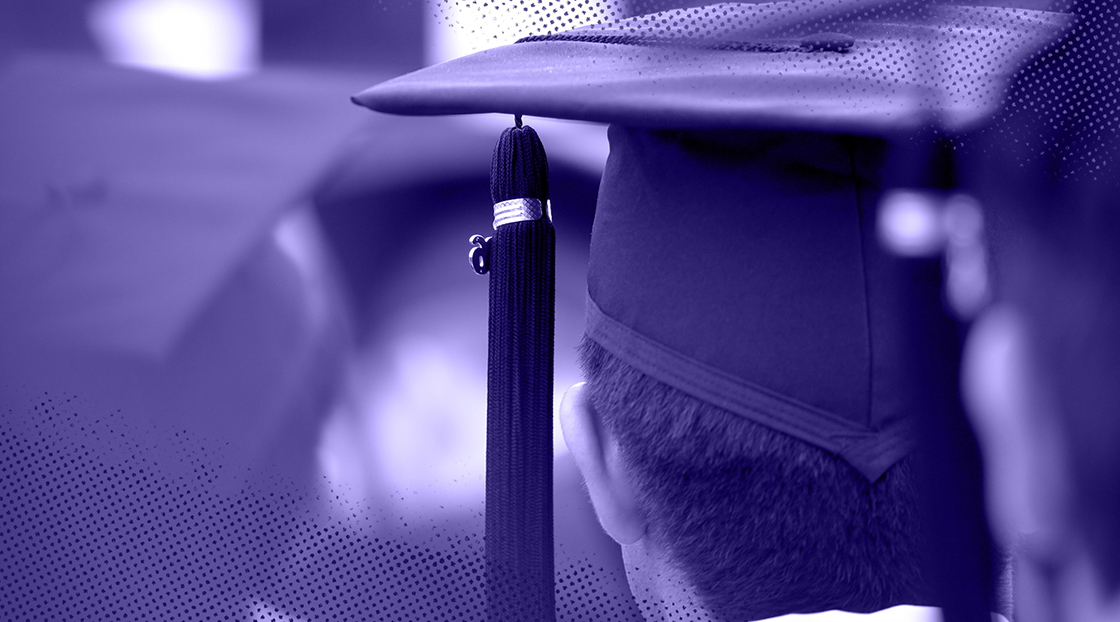Honorary degrees and commencement speakers have been controversial parts of the graduation process for centuries, and this spring’s graduation season has set the debate newly aflame. Amidst a heated 2024 spring semester, higher education institutions cite selection criteria designed to unite students, rather than divide them.
How Are Commencement Speakers, Honorary Degrees Selected?
Amid the 2024 spring semester division, higher education institutions cite unifying selection criteria for honorary degrees and commencement speakers.

Commencement Speaker Qualifications
“For graduate commencement ceremonies, speakers are generally graduate faculty members who are accomplished and highly engaged with graduate-level education,” said Angie Hunt, media relations specialist at Iowa State University. The graduate college “seeks facilities whose life histories and experiences are likely to provide an inspirational message about earning an advanced degree.”
Meanwhile, for undergraduate commencement ceremonies, the university considers “whether the speaker is an Iowa State alumnus or alumna or whether they have connections to Iowa State; whether they are known for being a dynamic speaker; and whether they have a story or background that would resonate with our graduates,” Hunt said.
Relatability and Impact
Similar principles hold elsewhere. Kalamazoo College seeks individuals who can share an inspirational message that will relate to students’ experiences, according to Karen Isble, vice president for college advancement at Kalamazoo.
The college also considers individuals who have made a noteworthy impact on their respective communities and those who reflect the college’s mission statement. This includes preparing students to lead in a diverse and increasingly complex world, said Isble.
Purdue University Global, an arm of Purdue University serving mainly working adults, selects its commencement speakers from a pool of alumni whose stories are likely to resonate with graduates, according to Senior Campaign Manager Beth Smith.
“We avoid candidates who focus on why they chose Purdue Global and the benefits of studying there,” Smith said. “Instead, we want alumni who share how they used their degree to advance their careers, inspiring the graduates who are listening… They need a speaker who has walked in their shoes and is ready to guide them on their next steps.”
However, this wasn’t always the case.
“In the past, we hired well-known speakers, but despite their recognizable names, they often lacked relatability to graduates,” Smith said. “Alumni, on the other hand, share common experiences with graduates, having returned to school for similar reasons. Graduates appreciate hearing about the post-graduation success of their peers.”
Purdue Global isn’t the only school that turns to its alumni list first when seeking a suitable commencement speaker.
“We look for alumni who are successful and have shared experiences with our students,” said Kenneth Kettenbeil, vice chancellor for external relations at the University of Michigan-Dearborn. “To this day, many of our alumni talk about being the first in their family to attend college, wanting or needing to stay close to home for college and working to put themselves through college. These stories coupled with their success typically make for good motivational addresses.”
Personal Stories Resonate Deepest
Like Purdue Global, UM-Dearborn also prioritizes the inspiration factor and relatability, while avoiding “speakers currently holding elected office. We do not want politics to overshadow the commencement day for the audience. More important now than in the past, we want commencement to serve as a pause or retreat from the daily political messaging currently consuming the country,” Kettenbeil said.
Marc A. Howze, now a senior advisor for the office of the chairman at Deere & Company and an alum of the University of Michigan-Dearborn’s class of ‘86, delivered a commencement speech in 2023. According to Kettenbeil, Howze’s speech resonated particularly strongly with students.
Howze spoke about overcoming the struggles that accompanied working to pay for his education and being a first-generation Black student. Despite many of his fellow students being “well-meaning,” Howze said, many “sought to compliment me, but rather, insulted me, by saying, ‘You’re not like most Black people.’ To me, that was code for, ‘I’ve been taught to have a negative impression of Black people and you don’t fit that stereotype. So rather than reevaluate stereotypes in the face of facts to the contrary, I’ve determined that you are just different.’”
Despite the interpersonal and systemic discrimination he faced, Howze graduated from UM-Dearborn and earned further degrees from the University of Michigan Law School and Duke University’s Fuqua School of Business.
At the close of his speech, Howze encouraged students to continue to develop their initiative, emotional maturity, prioritization skills and creative problem-solving. He also shared several useful questions students could ask themselves in the face of the difficult choices that sometimes accompany opportunity, such as “Will I learn something new?” and “Can I fill an unmet need?”
Additional standout speakers from past graduations included Judy Toland, vice president of global customer marketing at Meta, and Ashwini Balasubramanian, general manager for advanced engineering at Harley-Davidson Motor Company. Balasubramanian’s 2024 commencement address was received especially well by the university’s sizable population of international students, according to Kettenbeil.
Meanwhile, in 2023, Purdue Global’s winter commencement saw one of the most successful commencement speeches in the institution’s history. According to Smith, Dolan Williams, who was a Purdue Global’s Concord Law School graduate, received a 96% satisfaction rating from students.
Williams, the sole provider for his family of six, was the victim of company downsizing and the accompanying layoffs, an experience that resonated with Purdue Global’s working adult students – 85% of the school’s student body – who faced similar struggles during the COVID-19 pandemic. After earning his law degree, Williams eventually founded his own law firm.
Williams likened his experiences to a hurricane and encouraged students to conceptualize their struggles as temporary phenomena that can be survived and overcome.
“Success isn’t just having a long and impressive list of accomplishments; it is the power to live your life on your own terms. With your degree, this is the power that you all have now,” he said during the address.
Honorary Degrees in History and Practice
Alongside commencement speeches, the awarding of honorary degrees is a staple fixture of commencement ceremonies. In its 65-year history, UM-Dearborn has awarded 11 honorary degrees, the first in 1975 and the most recent in 2017, according to Kettenbeil.
Except for Kalamazoo, which has awarded at least one honorary degree every year going back several decades, all of the institutions with which Volt spoke often did not award honorary degrees for years at a stretch.
A Storied Tradition
History’s first honorary degrees appear to have been conferred in the 1400s, Oxford granted the first in either 1478 or 1479 to Lionel Woodville, future Bishop of Salisbury, according to an overview of the tradition assembled by Brandeis University. At the time, an honorary degree functioned similarly to a degree earned through a course of study, entitling one to “full privileges in the university.” Woodville would later become chancellor of the university, according to Oxford University.
The tradition grew steadily more popular, and controversy was not far behind. In one now-humorous incident spanning from the fall of 1642 to the spring of 1643, King Charles I conferred 350 honorary degrees from Oxford, an unprecedented quantity that led the university to file a petition against the king, requesting he stop, citing both financial and reputational damages to the university, according to Oxford University’s archives.
Meanwhile, the first honorary degree conferred in the Americas was bestowed to Increase Mather, president of Harvard University, in 1692. Despite honorary degree recipients rarely taking the title of “doctor,” one notable exception was Benjamin Franklin, who began referring to himself as “Doctor Franklin” in 1759 after receiving an honorary degree from the University of St. Andrews, according to the Brandeis writeup.
Significant Contributions
Today, honorary degrees are awarded for rather different reasons. Within the University of Michigan system, honorary degrees are issued to scholars, scientists, artists, and others who have “advanced their field of endeavor in significant ways,” according to the system’s policy website.
Alternatively, recipients may have “made distinguished contributions to society” as business people, aid workers, or government officials. At UM-Dearborn specifically, most have been honorary doctorates of law, a degree that, like other honorary degrees, does not confer the ability to practice law.
Likewise, Purdue Global has not prioritized or conferred any honorary degrees to date, though it does have a policy for doing so. Purdue Global’s honorary doctorate may be awarded “in extraordinary circumstances,” the university’s policy states, to individuals approved by the board of trustees in addition to meeting two of its five special criteria: distinctive academic accomplishment; impact to community, nation or humanity; national or global recognition of leadership in a field; commitment to the advancement of Purdue Global; and distinguished service to Purdue Global.
Purdue Global specifies that recipients of the honorary doctorate are to refrain from referring to themselves as “Doctor” and listing the honorary degree as an earned degree on a CV. Honorees are to specify on all applicable occasions that their degree is strictly Honoris Causa.
Iowa State’s policy is similar. It invites honorary degree nominations for those who have a record of noteworthy scholarship, research, or creativity, with special consideration given to minoritarian candidates, according to a 2013 update of its honorary degree policy.
Kalamazoo College, meanwhile, typically confers honorary degrees to those who meet all of the requirements of a commencement speaker and have reached “the highest levels of achievement and excellence in their fields,” noted Isble. Although many have, this does not necessarily mean all commencement speakers at Kalamazoo receive honorary degrees.
“Honorary degrees serve to honor members by association with the college,” said Isble. “And the college enjoys association with these excelling individuals by conferring honorary degrees.”
Newsletter Sign up!
Stay current in digital strategy, brand amplification, design thinking and more.
Recent in Donor & Alumni Relations
Also in Donor & Alumni Relations

Do alumni magazines still matter?
Alumni magazines that succeed trade puff pieces for purpose — and prove their power in the inbox age.

Turning the page on tradition.
A deep dive into the magazines that keep alumni connected, informed and inspired.

Redefining alumni relationships: What do they want from you?
Universities are finding new ways to engage alumni, while balancing traditional experiences and addressing challenges like negative publicity.




